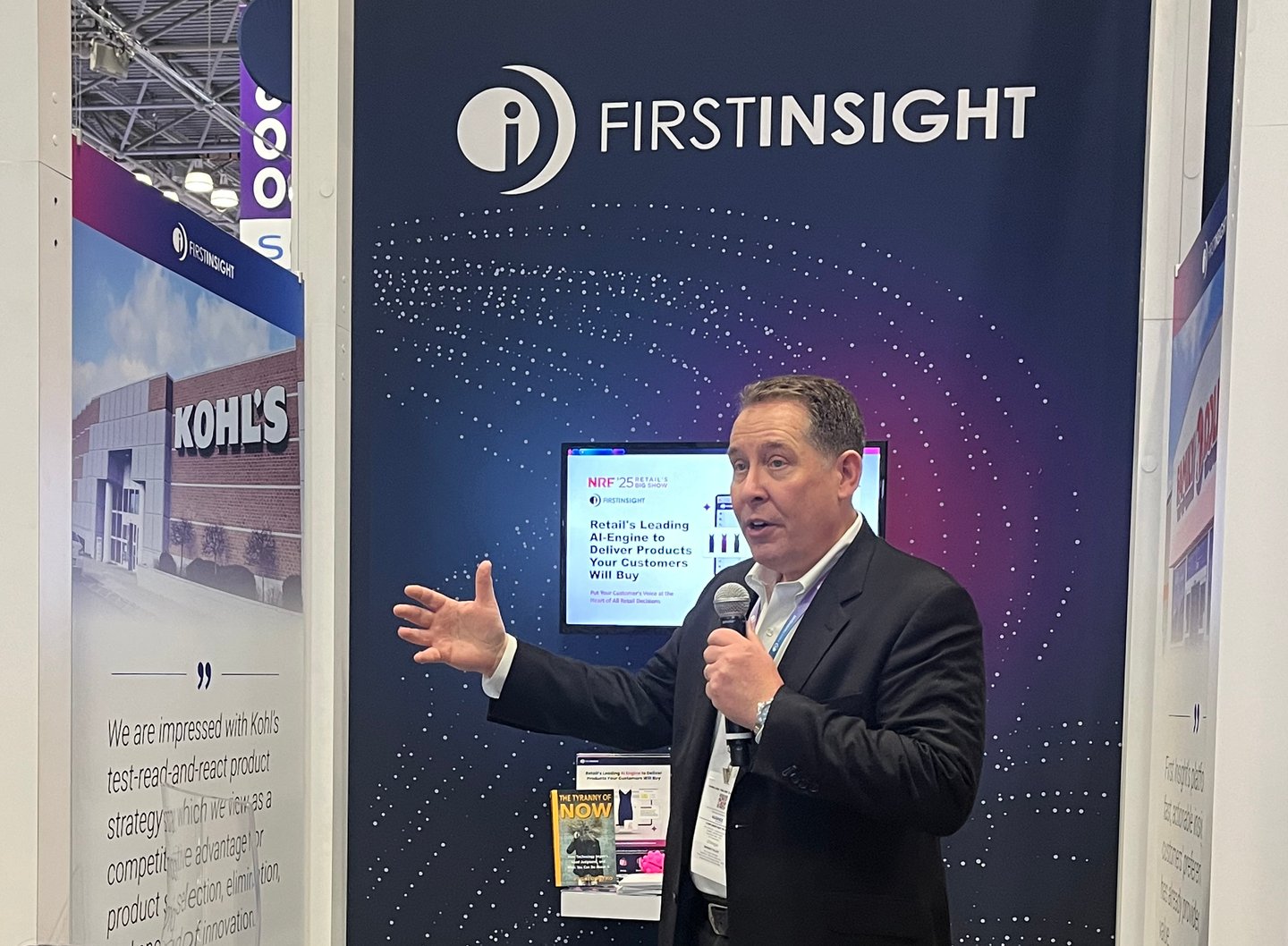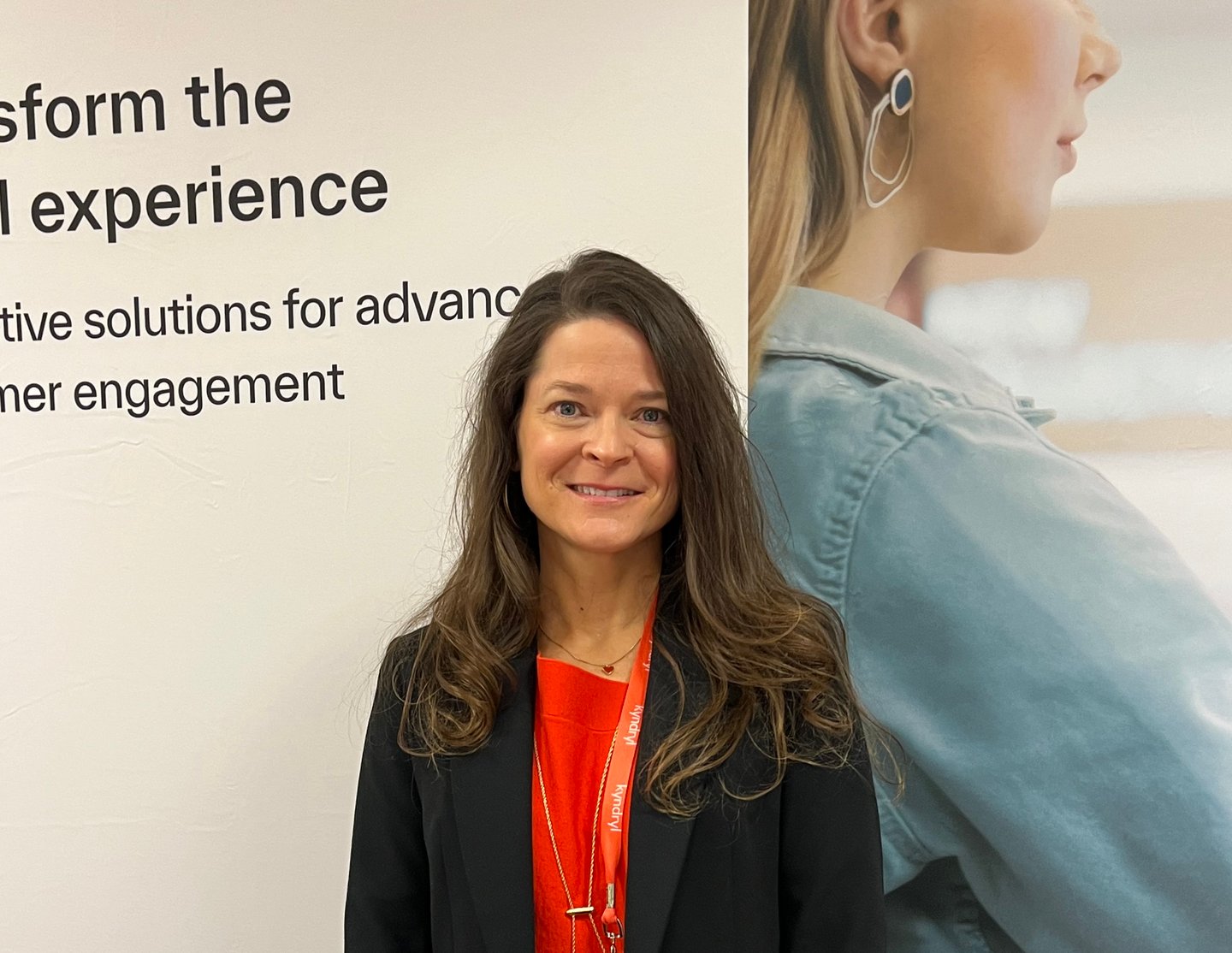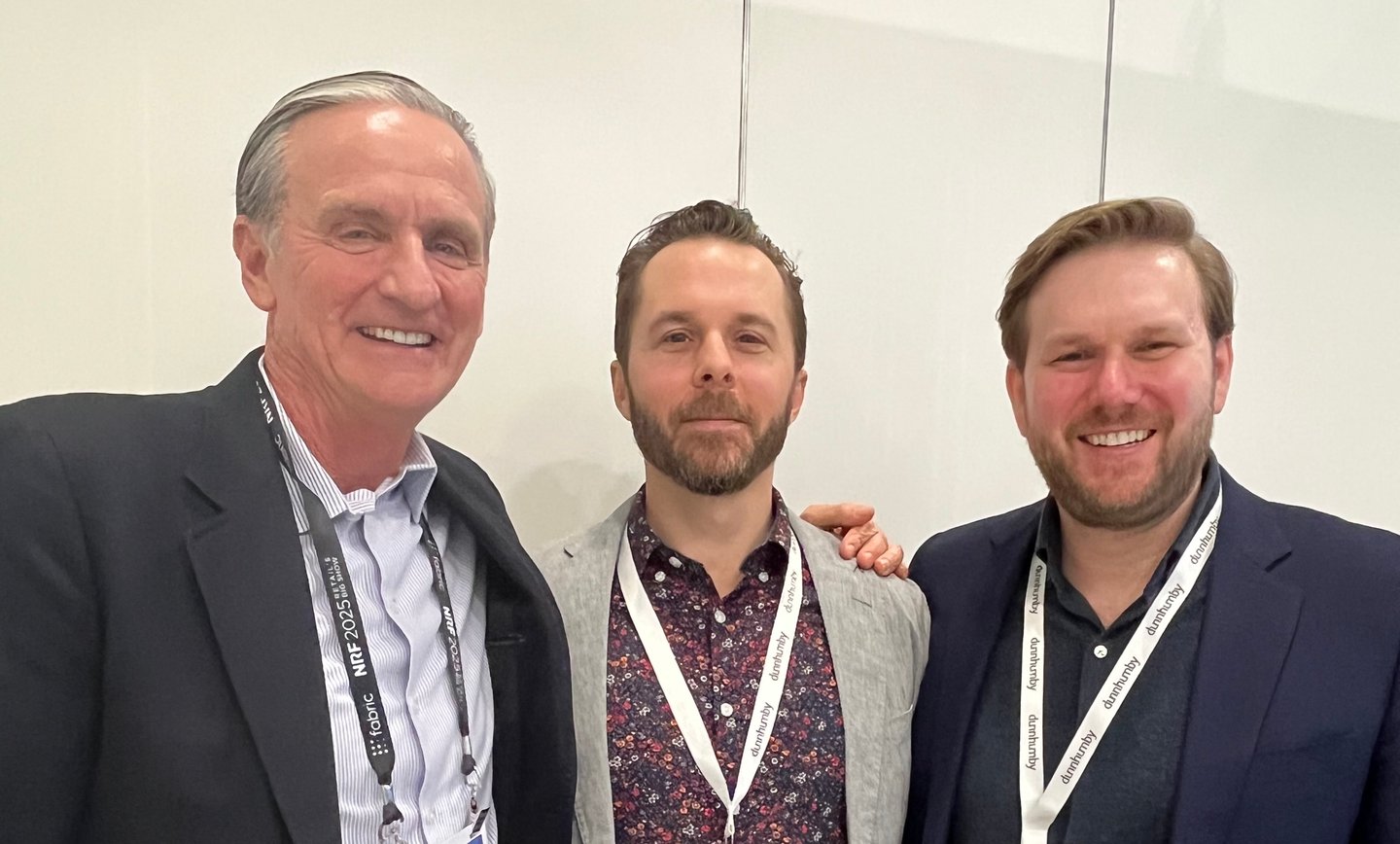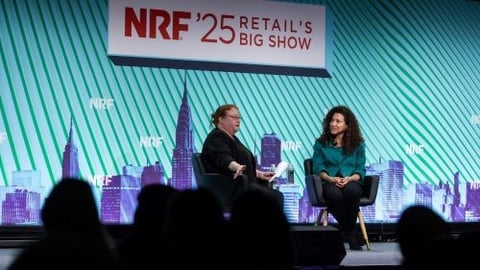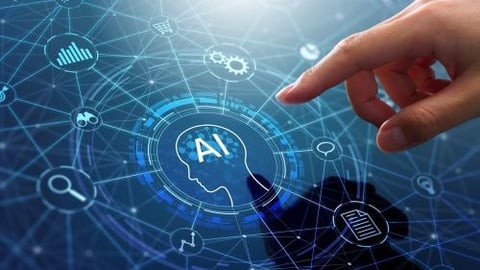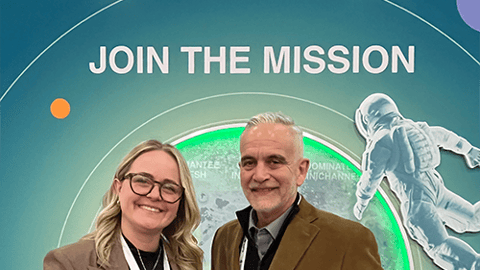Unpacking the Fear of AI
There was a striking moment at the keynote session of NRF 2025: Retail’s Big Show when Azita Martin, VP and general manager, retail and CPG at Nvidia, during a conversation with Walmart U.S. President and CEO John Furner that had turned to concerns that artificial intelligence (AI) would take associates’ jobs, quoted her boss, Nvidia CEO Jensen Huang, as saying, “No, but someone using generative AI may take your job, so embrace it.” (A similar quote has been attributed to economist Richard Baldwin.)
Of course, these days, there’s so many more potential sources of fear for employees and consumers alike, thanks to such variations as the much talked-about generative AI, which uses machine learning to create new data, as well as physics AI, allowing retailers to create physically accurate layouts; physical AI, which can train robots in a simulation environment; and agentic AI, which can make decisions, learn, act autonomously and even instruct other AI agents.
[RELATED: The AI Revolution in Grocery]
Asked by Furner how retailers should start implementing AI, Martin stressed that it was important to start, and that AI initiatives should be top-driven, with buy-in from the company’s top executives. She cited the example of Walmart, which “has really leaned into AI.” As for how retail employees should view AI, Martin described it as “a tool that makes you more productive.”
During a show floor presentation discussing his new book, “The Tyranny of Now,” Greg Petro, CEO of First Insight, an AI-native platform using human computational modeling, took a similar view, noting that when AI, which has been around since 1956, is used by a human to perform a task, the results beat the technology or the human acting alone. He also pointed out that AI can help with training by lessening the dip in productivity while a new employee learns a job.
A key downside to the technology, Petro acknowledged, was the possibility that employees and people wouldn’t engage with it. He advised that it was better to learn to work with AI to enable “faster and bigger” wins. “The average person needs to engage with AI as much as possible,” he observed.
At a session featuring Target CEO Brian Cornell, Great Place to Work CEO Michael Bush and Target Group VP Abubakarr Bangura, which was mostly about Target’s inclusive workplace culture, the topic also came up. Bush said that an employer encouraging an associate to interact with AI by telling them, “I want you to grow” would help overcome their fears of being supplanted by the technology, since they would understand that they still have a key part to play. For his part, Bangura asserted that it was “critical” for associates to hone their tech skills via AI continuous learning.
[RELATED: Target’s Chief Strategy Officer Talks About Preparing for What’s Next]
On the subject of AI, Kayla Broussard, CTO at IT infrastructure services company Kyndryl, noted: “We’re going to be doing a demo shortly around a front-line worker solution we’ve built that focuses on the store. Everybody’s going after chatbots, virtual agents, virtual assistants that are embedded in their IT processes and workflows for the digital side of it.”
Broussard went on to point out the irony that despite some consumers’ expressed discomfort with some aspects of AI – like how it gathers information – many of them gravitate to such AI-powered offerings as self-checkout, preferring it over human interaction with a cashier.
“I don’t know whether or not – I mean, some do realize that that’s all AI enabled behind the scenes,” she said. “There’s object recognition. But yeah, if you took away self-checkout in grocery stores today, that’d be a big problem. [Grocers’] NPS scores would tank.”
Beyond the fears of employees and shoppers, retailers should be concerned that they’re deploying AI ethically.
“We at dunnhumby take the ethical concerns around appropriate use of AI very seriously, and we … proactively bring that up,” noted Matt O’Grady, president, Americas at dunnhumby. “That is our responsibility as an analytic vendor to ensure it’s not misused. I hope other analytical companies are taking that equally seriously.”
[RELATED: Walmart Paves the Way for Ethical AI in Retail]
The reason for this, he explained, is “it is our responsibility, and if people want to know what our models look like or how we protect [personally identifiable identification] and how we anonymize data, we’re transparent on it because our whole reputation is based on that. … The first big AI problem is going to be sort of synonymous with a data leak.”
Added Eric Kahner, dunnhumby’s director, competitive strategy and insights: “We see in our research, it’s a bit of a generational divide with younger customers, [who are] less skeptical, willing to see more screens in the stores and have the data captured and have personalized services and offers served up in the moment. I do think because AI is something that is growing, its applications are growing, there’s potential that in the next year, two, three, four, five years, if some misuse of AI that’s synonymous with … mass manipulation of people as a grocery shopper, [if] that reputation for AI gets attached to any application, of AI skepticism, there could be a backfire. So I think staying in touch with your customer as you slowly roll out customer-facing applications of AI is critical just to see how customer opinion is responding, customer behavior. Because, as grocery is such a basic-needs business for people, and it’s something they do all the time, their behaviors are very scrutinized.”
Ethan Chernofsky, SVP of marketing at location analytics company Placer.ai, offered some sage advice for retailers implementing AI solutions: “AI is a foundational technology that is already enabling amazing advances that are helping retailers better analyze consumer behavior, optimize site selection strategies, drive more effective loyalty programs and even boost cybersecurity efforts. But the key is to focus on how AI can contribute to a needed solution and not on over prioritizing the technology itself.”
The most important thing to bear in mind what Target’s Cornell observed as he wrapped up his session: “Human interaction still matters.”


